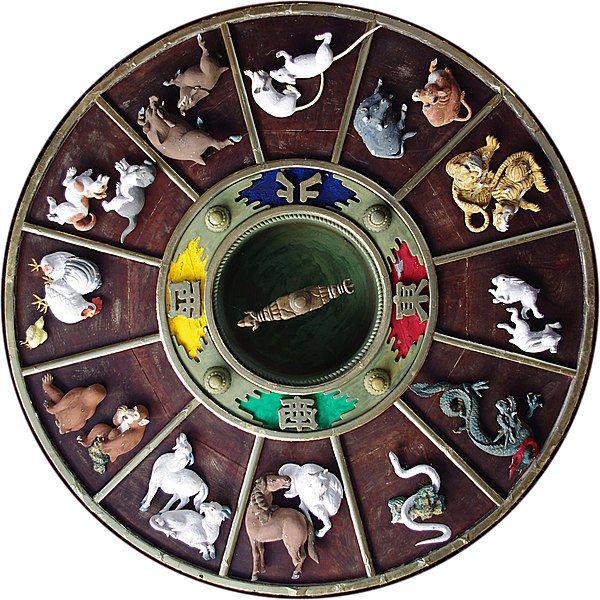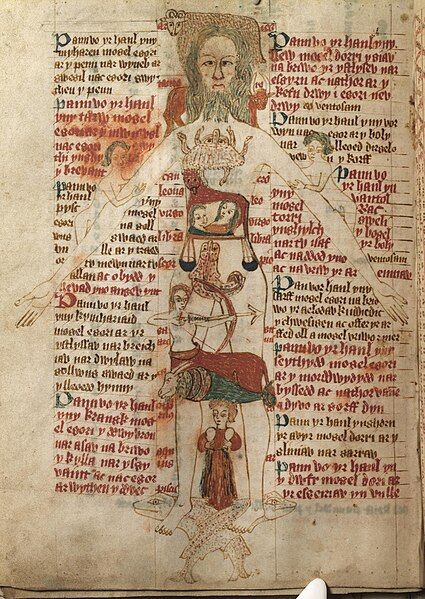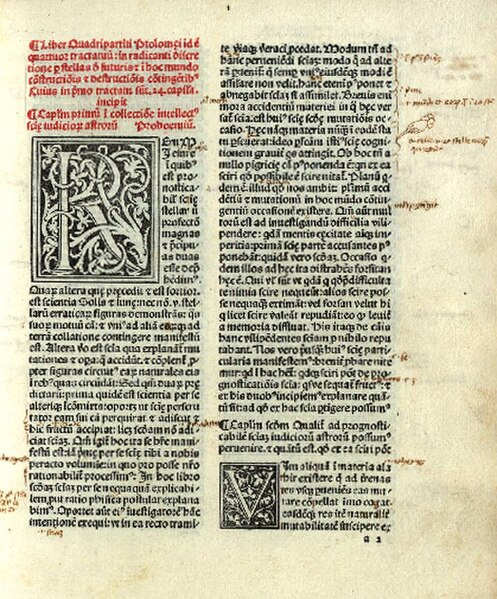A horoscope is an astrological chart or diagram representing the positions of the Sun, Moon, planets, astrological aspects and sensitive angles at the time of an event, such as the moment of a person's birth. The word horoscope is derived from the Greek words ōra and scopos meaning "time" and "observer". It is claimed by proponents of astrology that a horoscope can be used as a method of divination regarding events relating to the point in time it represents, and it forms the basis of the horoscopic traditions of astrology, although practices surrounding astrology have been recognized as pseudoscientific since the 18th century. Horoscope columns are often featured in print and online newspapers.
A horoscope showing Cancer sun sign
Astrological birth chart for Charles I of England
The astrological symbols/glyphs used in Western astrology to represent the planets in astrology
The 12 Chinese zodiac animals
Astrology is a range of divinatory practices, recognized as pseudoscientific since the 18th century, that propose that information about human affairs and terrestrial events may be discerned by studying the apparent positions of celestial objects. Different cultures have employed forms of astrology since at least the 2nd millennium BCE, these practices having originated in calendrical systems used to predict seasonal shifts and to interpret celestial cycles as signs of divine communications. Most, if not all, cultures have attached importance to what they observed in the sky, and some—such as the Hindus, Chinese, and the Maya—developed elaborate systems for predicting terrestrial events from celestial observations. Western astrology, one of the oldest astrological systems still in use, can trace its roots to 19th–17th century BCE Mesopotamia, from where it spread to Ancient Greece, Rome, the Islamic world, and eventually Central and Western Europe. Contemporary Western astrology is often associated with systems of horoscopes that purport to explain aspects of a person's personality and predict significant events in their lives based on the positions of celestial objects; the majority of professional astrologers rely on such systems.

Marcantonio Raimondi engraving, 15th century
The Zodiac Man, a diagram of a human body and astrological symbols with instructions explaining the importance of astrology from a medical perspective. From a 15th-century Welsh manuscript
The Roman orator Cicero objected to astrology.
1484 copy of first page of Ptolemy's Tetrabiblos, translated into Latin by Plato of Tivoli








